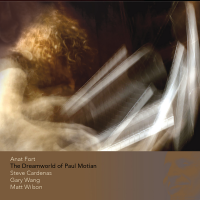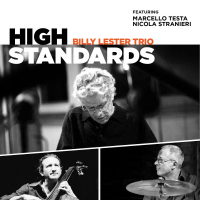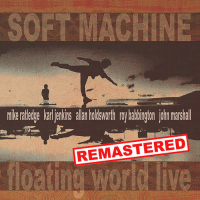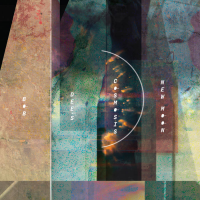Home » Jazz Articles » Album Review » Tierney Sutton: After Blue
Tierney Sutton: After Blue

Gretchen Parlato
vocals
Becca Stevens
vocalsThe last recording Sutton devoted to a single artist was 2001's Blue In Green (Telarc), which was devoted to the compositions of pianist

Bill Evans
piano1929 - 1980
Sutton performs a beautiful vocal alchemy with Mitchell's material. She steps far enough out of her jazz box of familiarity to transform her voice into a new force of nature. With perfect comfort, Sutton renews this material with her singing. These performances exist on an equal footing with the originals, not as imitations, but as complete re-assimilations. This is what interpretive art is meant to be. This swirling evolution is what makes Sutton one of the two or three most important vocalists in the post-Fitzgerald-Vaughan-Carter period.
Another area in which Sutton excels is in the collaborative arranging of these songs. She has always experimented with format and does not alter her modus operandi here. On "Blue," "All I Want," "Little Green," and "Both Sides Now," Sutton is backed by the Turtle Island String Quartet as arranged by first violinist David Balakrishnan. Sutton's soprano is well suited for this chamber treatment making these pieces exceptional, particularly "Blue" and "Both Sides Now."
Sutton favors vocal duets with solo instruments as on "Big Yellow Taxi" where she pairs with drummer

Ralph Humphrey
drumsb.1944

Larry Goldings
organ, Hammond B3b.1968

Al Jarreau
vocals1940 - 2017
Track Listing
Blue; All I Want; Court and Spark; Doní»t Go To Strangers; The Dry Cleaner from Des Moines; Big Yellow Taxi; Woodstock; Little Green; Be Cool; Answer Me, My Love; Both Sides Now; April in Paris/Free Man in Paris.
Personnel
Tierney Sutton
vocalsTierney Sutton: vocals; Hubert Laws: flute (5, 9); Peter Erskine: drums (5, 9); Ralph Humphrey: drums (6); Larry Goldings: piano, B3 organ (3, 5, 7, 9, 12); Serge Merlaud: guitar (4, 10); Kevin Axt: bass (4); Al Jarreau: vocals (9); Turtle Island String Quartet (1, 2, 8, 11).
Album information
Title: After Blue | Year Released: 2013 | Record Label: BFM Jazz
Tags
Comments
PREVIOUS / NEXT
Support All About Jazz
 All About Jazz has been a pillar of jazz since 1995, championing it as an art form and, more importantly, supporting the musicians who make it. Our enduring commitment has made "AAJ" one of the most culturally important websites of its kind, read by hundreds of thousands of fans, musicians and industry figures every month.
All About Jazz has been a pillar of jazz since 1995, championing it as an art form and, more importantly, supporting the musicians who make it. Our enduring commitment has made "AAJ" one of the most culturally important websites of its kind, read by hundreds of thousands of fans, musicians and industry figures every month.







 Buy Now
Buy Now

















